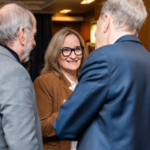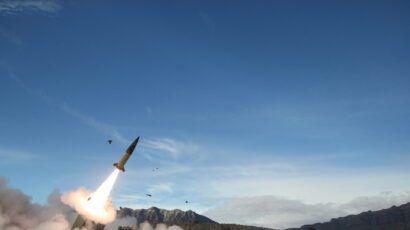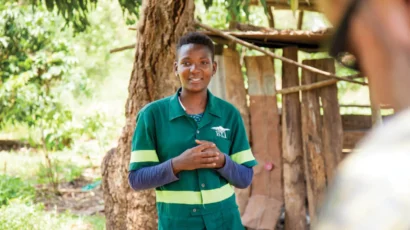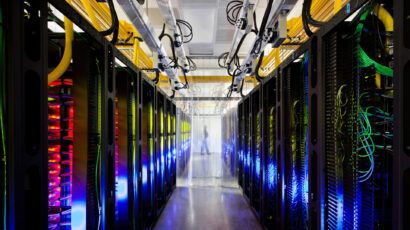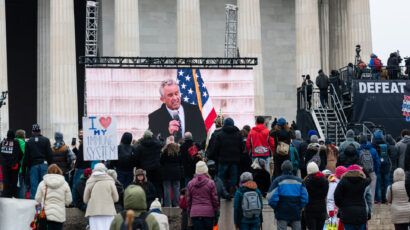The Bulletin hosts new UChicago program
By Talia Weiss | January 21, 2019

On January 18, the Bulletin launched an initiative designed to foster conversations among students in scientific, policy, and social science fields about manmade threats to the planet. The initiative’s objective is to better equip future scholars and leaders to tackle challenges posed by climate change, nuclear risks, and disruptive technologies.
Over 30 participants gathered to collaborate with an expert panel on accelerating the fight against climate change. The first panelist to speak was atmospheric scientist Elisabeth Moyer, who co-directs the University of Chicago’s Center for Robust Decision-Making on Climate and Energy Policy. She was followed by chemist R. Stephen Berry, who pioneered the practice of conducting “life cycle analyses” to trace the energy consumed throughout the process of manufacturing products.
Moyer stressed that tackling climate change is not simply a matter of opposing climate deniers and fossil fuel companies. Instead, according to Moyer, it is valuable to view climate change as a complex waste management problem for which all are responsible. She noted that transitioning to renewable energy sources on a large scale requires a dramatic change in infrastructure—one that is unlikely to occur quickly without economic accelerants like carbon taxes. In that context, Moyer encouraged students to engage with the specifics of carbon tax policy proposals and the politics that surround them. As a case study, she described the disputes that led two carbon tax plans to fail in Washington state (where support for addressing climate change is high); these disagreements largely centered on how to use tax revenue streams. Moyer said these failures serve as a reminder that achieving consensus, even among environmentalists, is both difficult and necessary.
After Moyer discussed the challenge of crafting successful climate policies, Berry described impactful approaches to advocating for such policies. He explained that, while it is difficult to directly access federal- and state-level legislators and persuade them to adopt certain stances, their staffers are often much more receptive. Not only that, according to Berry, legislators tend to highly value the advice of close aides, so students and researchers can influence policy by building relationships with those advisors. Berry also recommended writing targeted letters to newspaper editors, as well as working with groups including the Union of Concerned Scientists and the Bulletin. He pointed to a number of reports and publications that would help the students become better informed.
Moyer and Berry’s remarks were followed by small-group discussions. Participants were encouraged to draw upon the speakers’ ideas, as well as their group’s collective understanding of the relevant science, history, psychology, and ethics. They discussed topics ranging from the details of carbon tax policy implementation to public environmental engagement strategies (for example, championing initiatives that facilitate connection-building between scientists and communities that rarely interact with them). The Bulletin is in the process of developing opportunities so participants can continue their climate-focused discussions of last week.
Together, we make the world safer.
The Bulletin elevates expert voices above the noise. But as an independent nonprofit organization, our operations depend on the support of readers like you. Help us continue to deliver quality journalism that holds leaders accountable. Your support of our work at any level is important. In return, we promise our coverage will be understandable, influential, vigilant, solution-oriented, and fair-minded. Together we can make a difference.
Topics: What’s New at the Bulletin





